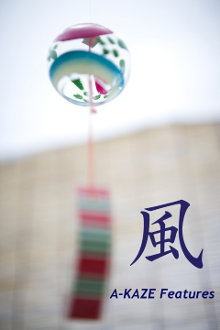





 |
 |
 |
 |
 |
 |
 |
|
|
KAZE FEATURES KAZE Features. Pablo F. Alcantarilla, Adrien Bartoli and Andrew J. Davison. In European Conference on Computer Vision (ECCV), Fiorenze, Italy, October 2012. bibtex We provide the open source code and the Iguazu dataset used in the ECCV paper for image matching evaluation under Gaussian Noise of increasing standard deviation. Download latest code from github: https://github.com/pablofdezalc/kaze |
 |
ACCELERATED-KAZE FEATURES Fast Explicit Diffusion for Accelerated Features in Nonlinear Scale Spaces. Pablo F. Alcantarilla, Jesús Nuevo and Adrien Bartoli. In British Machine Vision Conference (BMVC), Bristol, UK, September 2013. bibtex Download latest code from github: https://github.com/pablofdezalc/akaze |
KAZE Features is a novel 2D feature detection and description method that operates completely in a nonlinear scale space. Previous methods such as SIFT or SURF find features in the Gaussian scale space (particular instance of linear diffusion). However, Gaussian blurring does not respect the natural boundaries of objects and smoothes in the same degree details and noise when evolving the original image through the scale space. By means of nonlinear diffusion we can detect and describe features in nonlinear scale spaces keeping important image details and removing noise as long as we evolve the image in the scale space. We use variable conductance diffusion which is one of the simplest cases of nonlinear diffusion. The nonlinear scale space is build efficiently by means of Additive Operator Splitting (AOS) schemes, which are stable for any step size and are parallelizable. Accelerated-KAZE Features uses a novel mathematical framework called Fast Explicit Diffusion (FED) embedded in a pyramidal framework to speed-up dramatically the nonlinear scale space computation. In addition, we compute a robust Modified-Local Difference Binary (M-LDB) descriptor that exploits gradient information from the nonlinear scale space. A-KAZE obtains comparable results to KAZE in some datasets, while being several orders of magnitude faster. Our results reveal a big improvement in repeatability and distinctiviness, for common 2D image matching applications. Important: If you work in a research institution, university, company or you are a freelance and you are using KAZE or A-KAZE in your work, please let me know and send me an email.. I would like to know the people that are using KAZE around the world!! |
|
|
|